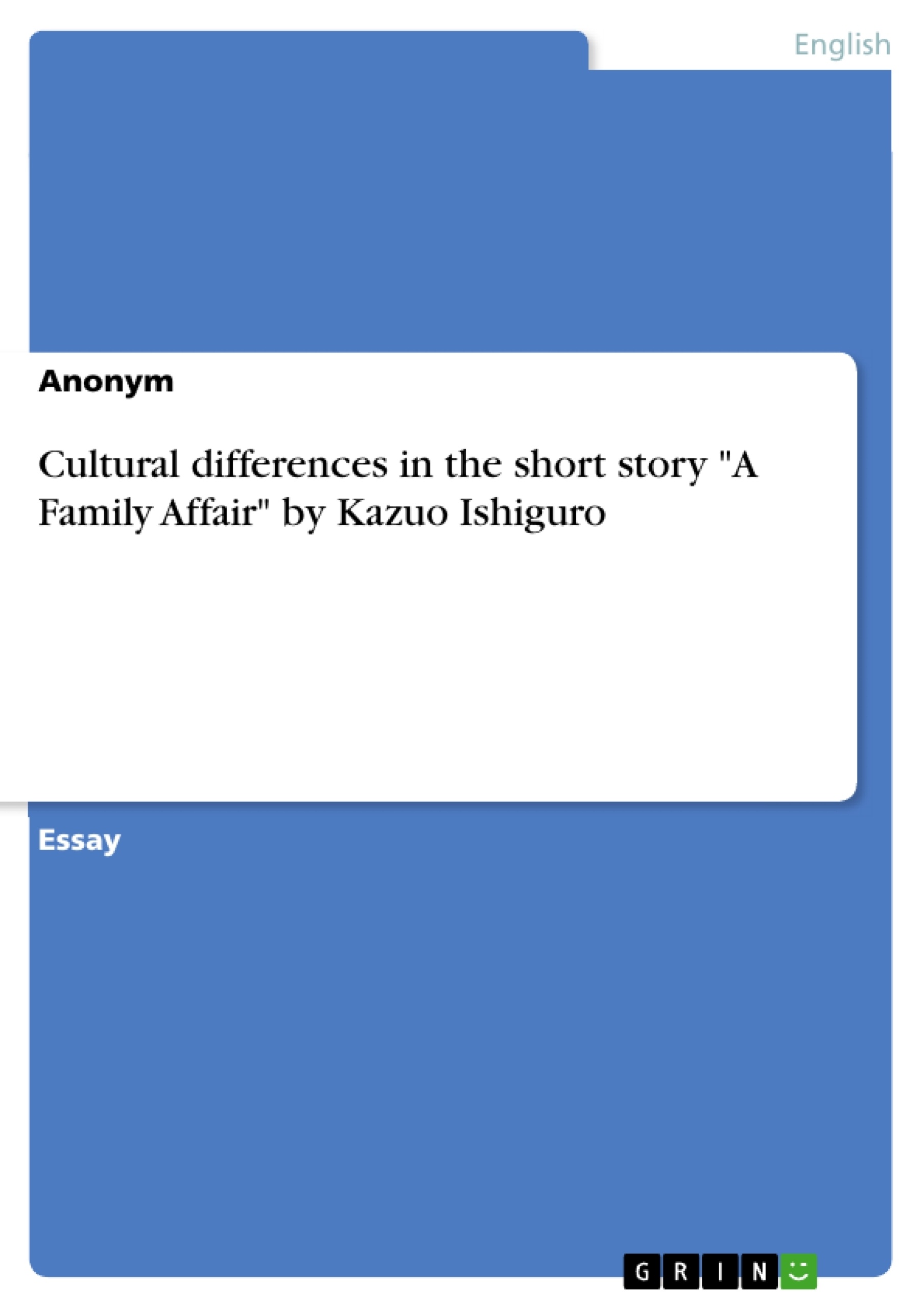This essay firstly looks at the culture model by Hofstede and its description of the Japanese culture in contrast to the American culture. Using this knowledge of both cultures it analyses the short story "A Family Affair" written by Kazuo Ishiguro. In his short story he describes the returning of a son from the United States, back to his traditional japanese family in Japan. Kazuo Ishiguro uses the clash of traditions, namly the American one versus the traditional Japanese one, to show the differences in both cultures.
Table of Contents
- The five-dimensional model of national culture.
- Short Story "A Family Supper"
- Using Hofstedes' model of culture to analyze the short story “A Family Supper.”
Objectives and Key Themes
This paper aims to provide a comprehensive analysis of the short story “A Family Supper” by exploring the cultural differences between the United States and Japan through the lens of Hofstede’s five-dimensional model of national culture. The analysis focuses on how cultural values and beliefs, as outlined by Hofstede, influence the characters’ actions, motivations, and relationships within the story.
- Cultural differences between the US and Japan.
- Hofstede's five-dimensional model of national culture.
- Power distance and its impact on family dynamics.
- Uncertainty avoidance and its influence on individual behavior.
- Cultural values and their role in shaping narratives.
Chapter Summaries
- This chapter introduces Hofstede's five-dimensional model of national culture and explains its relevance to understanding cultural differences between the US and Japan. It establishes the foundation for the subsequent analysis of the short story "A Family Affair."
- This chapter provides a summary of the short story "A Family Supper," highlighting the key events, characters, and their relationships. It sets the stage for the cultural analysis in the following chapters.
- This chapter delves into the application of Hofstede's model to analyze "A Family Supper," exploring how the five dimensions of culture – power distance, uncertainty avoidance, individualism, masculinity, and long-term vs. short-term orientation – manifest in the story and influence the characters’ actions and interactions.
Keywords
The main keywords and focus topics of this paper include: cultural differences, Hofstede's model, power distance, uncertainty avoidance, individualism, masculinity, long-term vs. short-term orientation, US culture, Japanese culture, short story, "A Family Supper," intercultural communication.
- Citation du texte
- Anonym (Auteur), 2018, Cultural differences in the short story "A Family Affair" by Kazuo Ishiguro, Munich, GRIN Verlag, https://www.grin.com/document/587944



